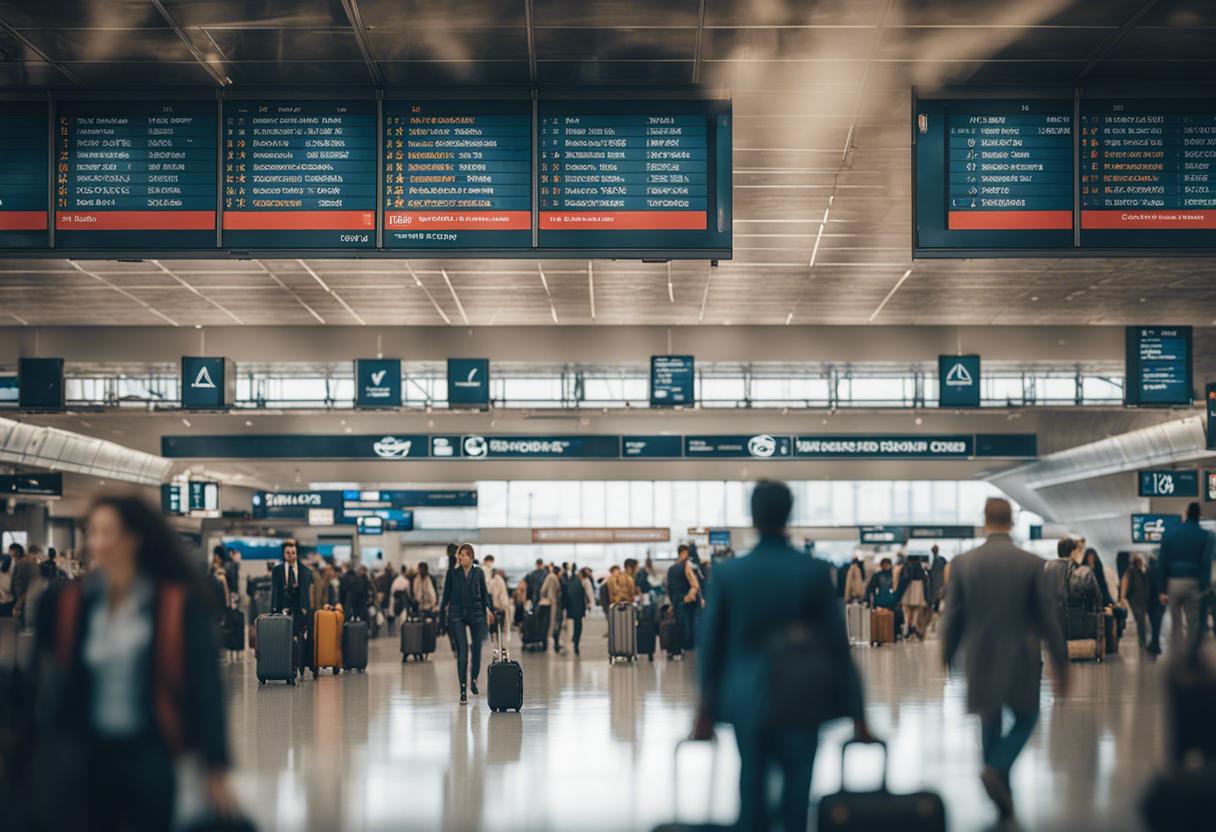Ryanair and Aer Lingus have been granted formal permission by the High Court to oppose the Irish Aviation Authority’s (IAA) resolution to curb passenger numbers at Dublin Airport for the forthcoming winter season. This decision by the IAA to enforce an Air Traffic Movement cap on passenger seating, restricting it to a little over 14.4 million passengers at Dublin Airport, starting from October 27th, 2024 and finishing March 29th, 2025, was announced in May last year.
Both carriers contend that the decision has legal shortcomings and calls for it to be annulled. They insist that in making the decision, the IAA behaved thoughtlessly and breached its powers. They also assert that the IAA didn’t provide clear reasoning for its decision and disregarded several of the airlines’ constitutional rights, like their property rights.
DAA, the airport operator, has also initiated a separate High Court case against the IAA’s ruling. According to Martin Hayden SC, representing Ryanair, and Paul Sreenan SC, advocating for Aer Lingus, the airlines’ lawsuits were lodged on different legal bases than those put forward by DAA.
Mr Sreenan commented that the ruling would harm Aer Lingus’s capacity to deliver certain winter services, including Christmas flights for children to Lapland and flights to ski resorts in France, Austria, and Switzerland. Mr Hayden expressed to the court that Ryanair is apprehensive that its operations might be adversely affected by the decision, especially if comparable restrictions are imposed on passenger figures for summer 2025.
Ryanair estimates, Ryanair may lose about €89 million in that season due to another “artificial cap” on passenger numbers at the airport, potentially resulting in the company losing around 5,600 slots.
The airlines have sought to annul the IAA’s decision, claiming that the authority made a legal error when allocating slots at EU airports. This allegedly happened when factors pertaining to the planning conditions of Dublin Airport’s Terminal 2 were considered as constraints when setting the airport’s coordination parameters. The Airport Coordination Limited, based in the UK, and the DAA, are party to these actions, with the former having been appointed to coordinate slots at Dublin Airport post the setting of parameters.
Ms Justice Niamh Hyland presided over both the applications on Monday. On a unilateral basis, she gave the airlines the go-ahead to proceed with their legal challenges. She commented that both the airlines were legally entitled to raise their respective actions and had presented debatable grounds. The only avenue open to the airlines to dispute the decision was via judicial review, according to Ms Hyland.
The hearing of the airlines’ legal proceedings has been postponed until next week. In response, airline representatives expressed their preference for the three challenges against the IAA’s decision to be tackled consecutively by the same judiciary member.

